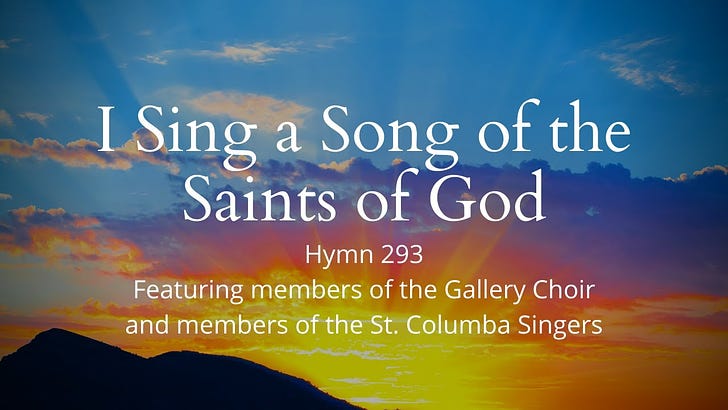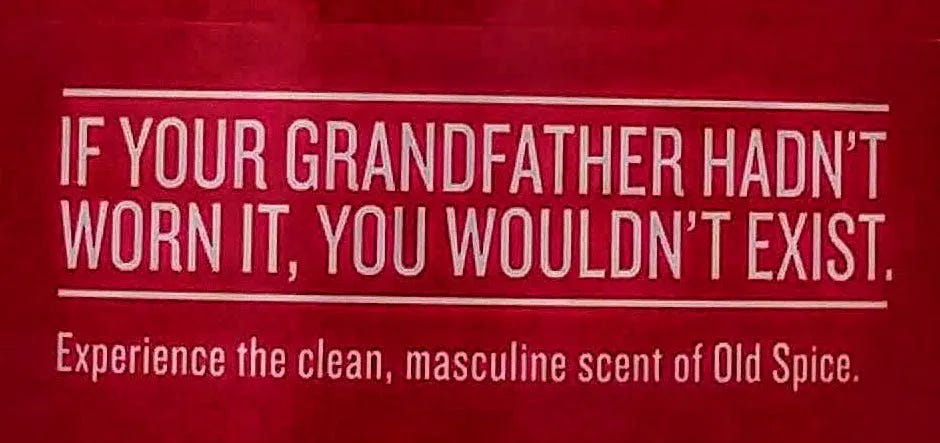Ancestor Worship: Very Popular
Especially among the old
I call Carol Franklin Holliday, my almost 101-year-old mother-in-law an ancestor worshipper, someone who spends time in veneration of the dead. It's not necessarily pagan. Days of the Dead are observed in many religious traditions. Christians observe All Saints Day and All Souls Day, and this year I could overhear my mother-in-law humming the hymn "I Sing A Song of the Saints of God." (Lyrics.) When you're presumably not very far from joining them, the dead may become more alive. "The future has little interest," she says.
There are a lot of ancestor-worshippers among senior citizens who have lost loved ones in all cultures, even North America. The genealogy group in my 55+ neighborhood is packed with participants eager to share their begats. My view is that in order to discuss genealogy with non-relatives, you have to find stories or links to history with universal appeal or slender threads. Or at least inspiring stories of demons overcome or vanquished after others were consumed by them.
If a chance meeting and mating hadn't occurred, you and a gaggle of other descendants wouldn't exist.
I get a kick out of this ad for Old Spice.
Genealogical study gives meaning to the idea that our lives have eternal, immortal, or historic significance because everyone is integral in the invisible chains of life.
My uncle, who wasn’t sure he believed in God, heaven, hell, or an afterlife at all, told me about a dream he had shortly before he died. He went on a journey, a long hike. Growing very tired, he lay down in a stream, where he was greeted by his ancestors or people who had gone before with whom he felt a kinship.
My mother-in-law is an amateur genealogist with boxes of files that may or may not be of interest to her one biological granddaughter, now 11.
One generation might be extraordinarily proud of what their distant ancestors accomplished, with incredible courage and a sense of adventure to leave their old world behind to somehow survive in the new world, even to prosper enough to have servants, build a substantial estate, or leave a legacy.
Another generation, tired of hearing how great their forefathers and mothers were, preferring the present, might note with a sense of shame that their ancestors indentured servants or owned slaves. Having servants -- oppressing people -- was nothing to be proud of, a younger generation may crow. They may be appalled by the letters of European-American ancestors who bragged of slaves or witnessed Native American massacres and had no regrets.
"How dare you!" the older generation may retort. "Whether you realize it or not, you stand on the shoulders of your ancestors. You benefited and still benefit indirectly from their work, service, and servitude. The monetary, emotional, psychological, and physical investments the family made long ago, through the miracle of compound interest, are part of what to you is an entirely invisible inheritance."
In not recognizing societal changes, my mother-in-law is a time traveler, having lived far beyond her time. She’s not like the other descendants of Confederate General Robert E. Lee — she likes to reveal that he is her fourth cousin — who’ve advocated taking down his statue and letting his cause be lost. She’s not interested in discovering surprises in her DNA, as I did, learning of dozens of African-American cousins, suggesting matings that aren't on the genealogical charts, and raising uneasy questions. History is like that, full of things of which to be proud and ashamed.
Well into her nineties, Carol Holliday was involved in historic preservation, and a leader in the National Society of the Colonial Dames of America, which is composed of women who are descended from an ancestor "who came to reside in an American Colony before 1776, and whose services were rendered during the Colonial Period." The organization has 44 corporate societies. Wikipedia.
They were featured in Steven Birmingham’s somewhat satirical bestseller of the 1960s called "The Right People: A Portrait of the American Social Establishment," mostly about the landed gentry of primarily English and certainly European ancestry.
“There’s Society, and then there’s Real Society, and it takes multiple generations for families of the former to become entrenched in the latter. Real Society is not about the money—or rather, it’s not only about the money—it is about history, breeding, tradition, and most of all, the name." More from Goodreads.
That book is now a relic of a bygone era. A lot of that old money was spent or run through, and the descendants are middle class or less. An entirely new society and new establishment now exists, far less rooted in the landed gentry from England.
And yet preserving the past is important, to know who we are as a people, where we’ve come from, and where we are going.
Well into her nineties, my mother-in-law Carol Holliday spearheaded an archaeological dig at the Dorothy Quincy Homestead in Massachusetts. The house was home to five generations of the Quincy family. "The house that still stands
Keep reading with a 7-day free trial
Subscribe to Slender Threads / Global Citizens / Public History to keep reading this post and get 7 days of free access to the full post archives.





